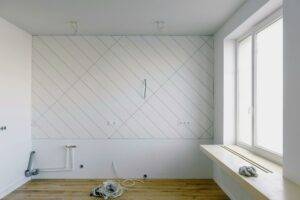Introduction
Do you dream of transforming an old Andalusian estate into a modern haven or increasing the profitability of your student rental in the heart of Valencia? Property renovation in Spain can be an exciting and profitable venture. However, be cautious of potential pitfalls: building permits, hidden costs, and more – numerous challenges await you. In this practical guide, discover our expert tips to successfully carry out your project easily and without unpleasant surprises, from budgeting to supervising the work.
The Potential of Property Renovation in Spain
Approximately 25% of homes in Spain are over 40 years old, meaning a significant portion of the real estate market needs modernization or rehabilitation. This presents fertile ground for investors with considerable potential.
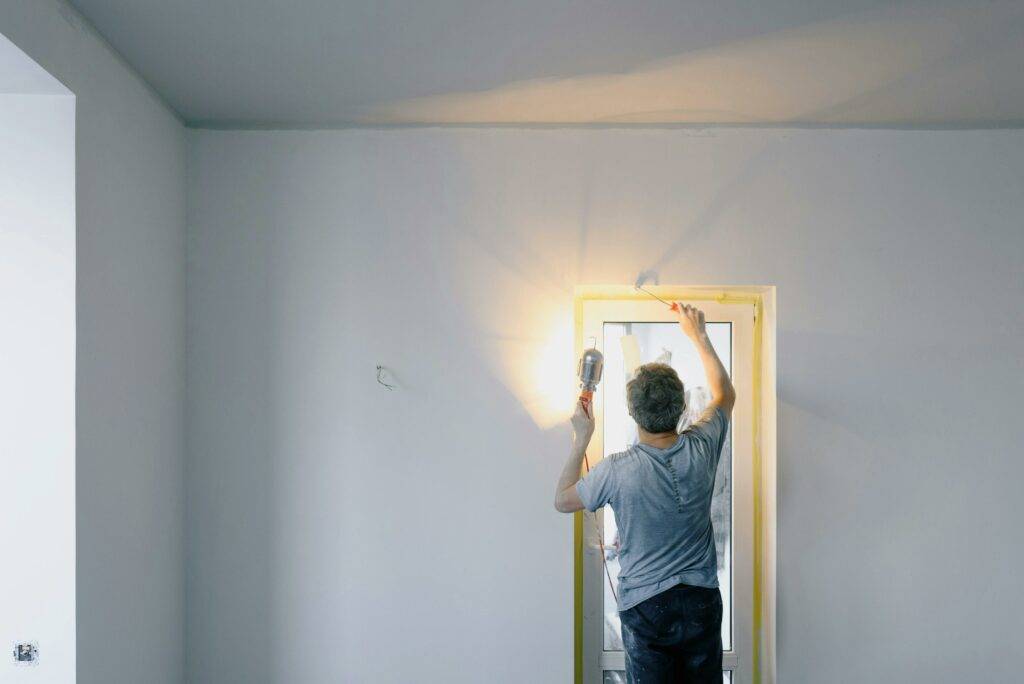
Terreta Spain offers comprehensive support, from estimation to project completion. Contact us.
Why Choose Renovation in Spain?
Property renovation in Spain offers several significant advantages, including:
- A substantial increase in property value, with an average price increase of over 30% for renovated apartments.
- Preservation of the unique character and charm of old Spanish properties while modernizing them.
- Improved energy efficiency of the property, a crucial factor in Spain, where the construction sector accounts for 31.6% of the country’s final energy consumption.
- Renovated apartments sell faster than others. Buyers prefer move-in-ready properties, and some experienced investors, aware of the opportunities in the Spanish market, even lean toward quick flips to maximize their investment in record time.
- Last but not least: It’s cheaper than in most European countries.
What Are the Labor Costs for Property Renovation in Spain?
One of the main advantages of property renovation in Spain lies in the lower labor costs compared to Great Britain or USA. On average, the hourly labor rate in Spain is €25 without VAT. It allows for significant savings in the overall renovation budget.
What Is the Cost of Renovation Work in Spain?
- The average cost of a renovation in Spain is around €28,000, which is also lower than the French average (€60,000 for standard renovation).
- For a 100 m² home, the renovation budget typically ranges from €30,000 to €50,000, a great deal for investors.
- The cost per square meter generally varies from €400 to €900, depending on the scope and nature of the work.
- However, in recent years, renovation costs have increased by over 20%.
What Is the Cost of Building Materials in Spain?
Recently, the cost of building materials in Spain has increased. The reasons? The pandemic and inflation. In February 2024, the construction cost index reached a record high, the highest since records began in 2005. Although the upward trend stabilized somewhat in 2023, prices remain significantly higher than pre-pandemic levels.
The materials most affected are:
- Ceramic (+52% in the past 10 years)
- Cement (+49%)
- Aluminum (+48%)
- Wood (+32%)
- Glass (+31%)
Despite these increases, materials remain cheaper than almost everywhere else in Europe.
Renovation Increases the Rental Potential of a Property
In Spain, where the short-term rental and student rental markets are particularly dynamic, a renovated property can significantly enhance its rental potential and return on investment. Tenants are usually willing to pay a higher rent if the quality and comfort of the property are up to par. Additionally, tenants willing to pay slightly above-average rent tend to be reliable and take better care of the property, benefiting the owner and guaranteeing savings.
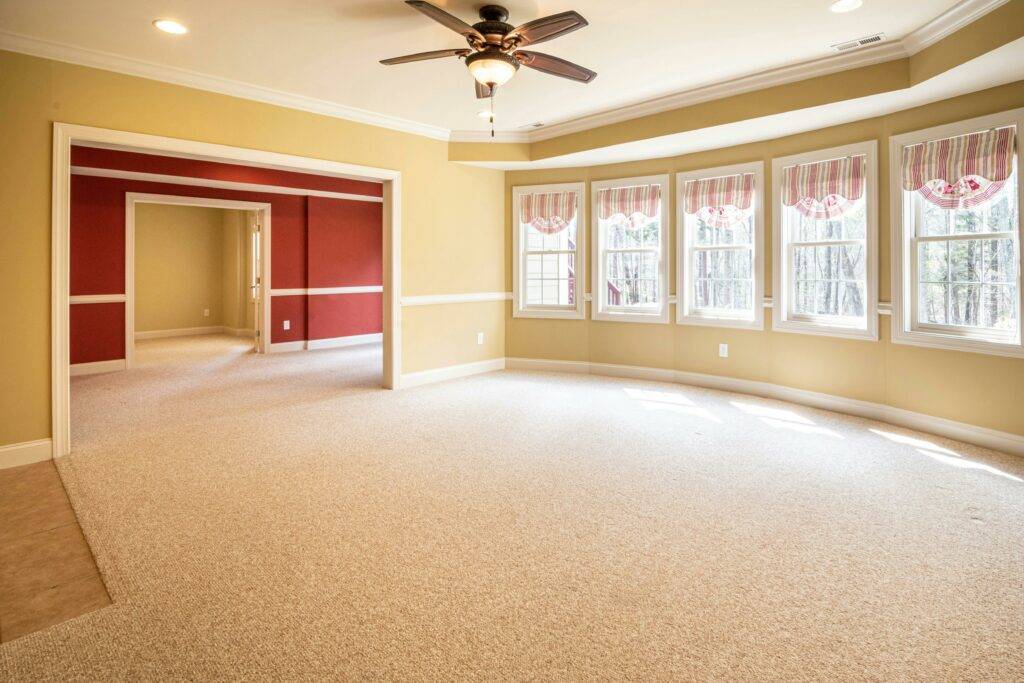
The Context of the Property Renovation Market in Spain
Renovation in Spain: A Growing Sector
Since the 2020 pandemic, the property renovation sector in Spain has been booming. Why?
- The lockdowns made people realize the importance of feeling comfortable at home.
- Improving the energy efficiency of homes has become necessary and inevitable.
- Foreign buyers, whose purchasing power is often higher than that of Spanish buyers, purchased more than 15% of available properties in 2023 and did not hesitate to undertake renovations.
- The explosion of tourist rentals has increased the need for renovations to meet travelers’ expectations.
The Most Common Types of Property Renovations in Spain
Property renovation projects in Spain cover a wide range of work, including:
- Kitchen and bathroom modernization, highly valued to increase rental property value.
- Renovating bedrooms, especially for student rental properties.
- Improving energy efficiency (insulation, replacing windows, installing energy-efficient heating and air conditioning systems).
- Complete renovation of old properties, particularly in historic city centers and for properties intended for tourist rentals.
- Renovating outdoor spaces such as terraces and gardens, which are highly sought after in the Spanish market.

Terreta Spain can assist you from estimation to project completion. Contact us.
Regulations, Licenses, and Permits for Renovation in Spain
A crucial point to keep in mind: never embark on a property renovation project in Spain without consulting the homeowners’ association and contacting an architect. You would be risking a lot.
What Are the Local Regulations for Property Renovations in Spain?
In Spain, each locality and municipality has its own regulations regarding renovation work. For example:
- Catalonia: In Barcelona, there are strict rules governing the preservation of architectural heritage. Renovations often require specific permits, and technical inspections are mandatory for older buildings. The regulations aim to preserve the historical architecture and ensure the sustainability of constructions.
- Andalusia: In contrast, in Andalusia, the rules can be more flexible. Light renovations may require fewer administrative formalities, and the time required to obtain permits is generally shorter, facilitating a faster renovation process.
Before starting a renovation project, our experts research the specific regulations of the autonomous community in question. Contact them.
What Are the Different Types of Renovation Permits in Spain?
Two main types of permits are required for renovation work in Spain:
- Minor Work Permit (Licencia de Obra Menor): For minor renovations that do not alter the building’s structure. Once issued, this permit is only valid for 3 months.
- Major Work Permit (Licencia de Obra Mayor): For significant renovations that affect the building’s structure or exterior appearance, requiring the submission of detailed plans prepared by a certified architect.
How Much Do Renovation Permits Cost in Spain?
The cost of a renovation permit in Spain is generally estimated at less than €300, or 3% to 3.5% of the estimated renovation costs. Additional processing fees vary by municipality.
What Are the Procedures for Obtaining Renovation Permits in Spain?
- The permit application is submitted to the town hall, along with a renovation project signed by an architect in the case of a major renovation.
- The timeframe for obtaining a permit varies from 1 to 3 months for a Minor Work Permit and can extend to 6-8 months for a Major Work Permit, depending on the complexity of the project and the municipality.
What Are the Risks of Renovating Without a Permit?
If you don’t follow proper procedures, you risk a fine (ranging from €600 to €1,000 for minor work) or forced demolition.
Moreover, undeclared work can cause issues when selling the property, complicating the transaction and lowering the property’s value. In short, don’t try to bypass the rules – it will cost you in the long run.

Energy Renovation in Spain
Where Does Spain Stand on Energy Renovation?
Did you know that 80% of homes in Spain do not meet the strict energy standards of the European Union? Under new legislation, by 2033, all homes sold or rented must achieve at least a D-class energy certificate. In light of this challenge, energy renovation is not only a necessity but also a promising investment opportunity.
When planning your renovation, ensure your project complies with the new regulations. This may include:
- Thermal insulation of walls, roofs, and windows.
- Installing energy-efficient heating and air conditioning systems.
- Using sustainable and eco-friendly materials.
Terreta Spain can assist you with your energy renovation in Spain. Contact us.
Energy Efficiency Certificate in Spain
In Spain, the Energy Efficiency Certificate (Certificado de Eficiencia Energética, CEE):
- Has been mandatory for property sales or rentals since 2013.
- Evaluates insulation, ventilation, air conditioning, and hot water systems.
- Provides improvement recommendations and their estimated costs.
As of 2024, asbestos and lead inspections are still not mandatory in Spain.
How Much Does Energy Renovation Cost in Spain?
The average cost of energy efficiency improvements for a 100 m² apartment is estimated at around €12,000. However, these investments will pay off in the long term. Owners can expect:
- Potential savings of €1,000 per year on energy bills.
- An average property value increase of about 30%, as previously mentioned.
Energy Renovation Incentives in Spain
To encourage energy renovation, the Spanish government has implemented several measures:
- Grants that can reduce insulation costs by up to 40%.
- Tax deductions for energy efficiency improvement investments.
- Access to tax benefits on income tax for residents for energy renovation works.
Tax Benefits of Energy Renovation in Spain
Here’s what Spanish resident owners can expect when improving their property’s energy performance:
- A 20% tax reduction for renovations that reduce heating or cooling needs by 7% (note: this is capped at €5,000 per property).
- A 40% tax benefit for improvements that reduce non-renewable energy usage by 30% (capped at €7,500).
- A 60% tax deduction for homes that reduce non-renewable energy consumption by 30% (limited to €15,000).
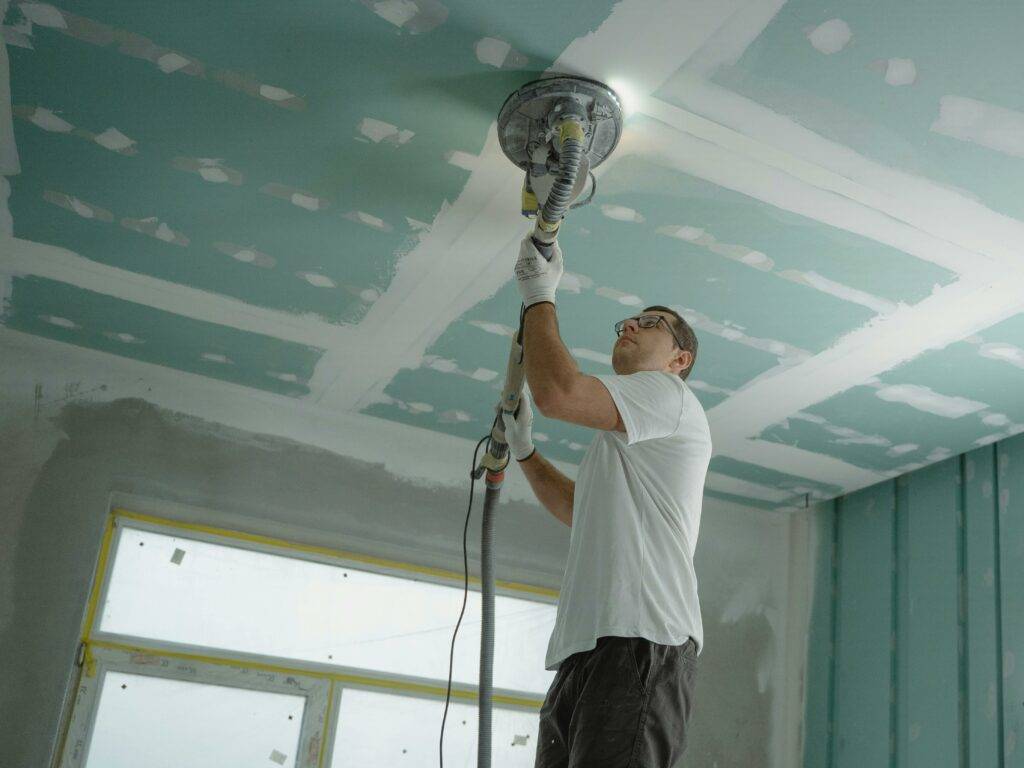
Practical Aspects of Property Renovation
Timelines for a renovation in Spain
The average timeline for a complete property renovation in Spain is about three to four months for a 100 m² home, but it can vary significantly depending on the scale of the work and the region where the property is located.
How to Choose Your Contractor
How to Choose Your Contractor ?
- Request several detailed quotes.
- Ensure that the company is certified and insured.
Our Tips for Organizing Your Property Renovation in Spain and Optimizing Your Budget
Meticulous Planning of the Work
Meticulous planning is key to a successful renovation:
- Start by establishing a detailed plan for your work. Clearly define your objectives and priorities.
- Obtain all necessary permits before starting the work. Permit approval times can be long, as we’ve mentioned.
- Ensure material availability before starting and explore the use of prefabricated and sustainable materials to reduce costs and increase your property’s energy efficiency.
- Keep an eye on promotions and clearance sales for materials and equipment at stores like Bahaus or Leroy Merlin, two leading chains in renovation and construction in Spain.
- Set a clear schedule with your contractors to monitor progress.
Hire an Expert to Supervise Your Project in Spain
This is our most important advice. Although it may seem like an additional cost, hiring a local professional to supervise your project is a wise, and even necessary, investment. A Spanish market expert can help you:
- Navigate local administrative procedures.
- Communicate effectively with craftsmen and suppliers.
- Manage unexpected issues and meet deadlines.
- Ensure that the work complies with local regulations.
Terreta Spain offers comprehensive support, from estimation to project completion for your renovation work in Spain. Contact us.
What Are the Main Challenges of Property Renovation in Spain?
The challenges of renovating in Spain are numerous:
- Lack of knowledge of local regulations.
- Complexity of obtaining the necessary permits and authorizations.
- Difficulty supervising work for non-resident owners.
- Underestimation of the budget.
- The language and cultural barrier complicating communication with local craftsmen and suppliers.
- Lack of knowledge about specific technical constraints, such as adapting to local climate conditions (heat, humidity, salt spray for coastal properties).
To overcome these challenges, it is recommended to gather sufficient information beforehand, enlist the help of experienced local professionals, plan a realistic budget with a margin for unexpected expenses, and be patient with administrative procedures.
Know the Hidden Costs of Your Renovation Work in Spain
What additional costs should you anticipate for a property renovation in Spain?
- Permit fees (3% to 3.5% of the total renovation cost).
- Architect fees: approximately 10% of the total cost for large projects (architects are mandatory if you apply for a major work permit).
- A reserve fund of 10% to 20% of the total budget for unexpected expenses.
- Public space occupation fees: €5 per day if you place a dumpster in front of your building.
- Costs and taxes associated with permits, such as an urban planning services tax (Tasa por Actuaciones Urbanísticas: around €150 for work under €6,000, and up to €1,000 for large projects) and the municipal tax on construction, installation, and work (ICIO), which ranges from 0.5% to 4% of the cost of the work.
- Risk of substantial penalties: fines ranging from €600 to €1,000 for minor work without a permit.
- Project management fees, especially if you do not live on-site.
- Temporary accommodation costs if needed.
- Compliance upgrade costs, which may be mandatory for certain renovations.
- Specific insurance to cover risks related to the work.
Conclusion
Property renovation in Spain offers promising prospects for investors but requires thorough preparation. The key to success lies in understanding local regulations and enlisting sector experts. A well-structured approach, considering regional specifics, can turn your project into a profitable and rewarding investment.
Sources :
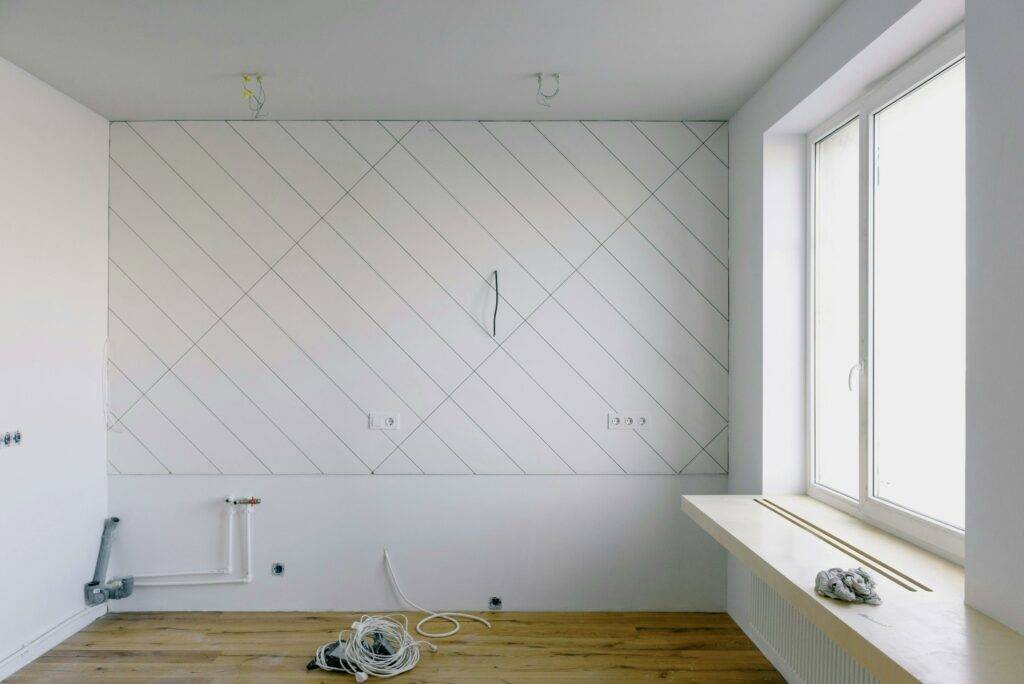
FAQ: Everything You Need to Know About Property Renovation in Spain: Costs, Permits, and Tips
What Permits Are Required to Renovate a Property in Spain?
There are two main types of permits:
- Minor Work Permit (Licencia de Obra Menor): for minor work that does not affect the building’s structure or façade. The estimated time to obtain it is 1 to 3 months. It is valid for 3 months.
- Major Work Permit (Licencia de Obra Menor): required for major work that modifies the building’s structure or façade. This permit can take between 3 to 8 months to be granted, depending on the region and the complexity of the project. It may take even longer for listed or protected buildings.
What Are the Costs of Renovation in Spain?
Renovation costs in Spain are relatively affordable : light work is estimated at €400/m², while more complex renovations using high-end materials can reach €900/m². It is recommended to allow a safety margin of 10% to 20% for unexpected expenses.
How Do You Obtain a Renovation Permit in Spain?
To obtain a renovation permit, you must submit a renovation project (Proyecto de Reforma) prepared by an architect to the town hall (ayuntamiento). A complete file, including plans, a budget estimate, and technical details, will be required.
What Are the Penalties for Renovating Without a Permit?
If you undertake work without the necessary permits, you could face fines ranging from €600 to €1,000 for minor work. For more serious or repeated infractions, stricter penalties may be applied, including stopping the work or demolition.
What Are the Tax Benefits Related to Renovation Work?
Certain renovations, particularly those aimed at improving a building’s energy efficiency, may qualify for tax deductions.
What Are the Average Timelines for a Complete Renovation?
In Spain, a complete renovation can take between 3 and 4 months for a 100 m² home, depending on the nature of the work and the region where the property is located. However, this timeframe can vary depending on permits and unforeseen events.
How Do You Find Reliable Professionals for Your Renovation in Spain?
It is recommended to obtain multiple quotes and hire experienced local professionals. Check references and make sure the chosen companies are properly certified and insured. Hiring an architect to oversee the project is a good option, especially if you are not on-site.
Is Co-ownership Approval Required to Renovate a Property?
Yes, in Spain, co-ownership approval is essential before submitting your permit application to the town hall. This approval is necessary for work affecting common areas (such as façades, terraces, or balconies) and even for minor work.





